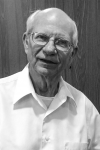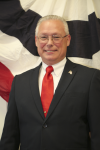How can God use one faithful life to change the world?
Consider 77-year-old Jim Slack.
He retired from the International Mission Board (IMB) in June after 50 years as a missionary, missiologist, strategist, researcher, ethnographer, teacher and passionate advocate for unreached peoples, especially oral learners who need God’s Word in forms they can understand.
Slack has been at the center of several movements that revolutionized modern missions. And he’s not through yet. He has multiple projects in the works, from investigating potential church-planting movements to guiding missions-related dissertations by seminary students.
“Whatever physically I can do, I want to do,” Slack explained in his trademark Louisiana rasp.
Slack was a bright young college grad on the way to law school when a summer of ministry in Hawaii — still considered by many a “foreign missions field” in those days — captured his heart and mind for missions. He returned home to tell Mary, his wife-to-be, that life plans had changed. She happily informed him that she had surrendered her life to serving God in missions years earlier.
Before they went to the Philippines as Southern Baptist missionaries in 1964, however, Slack worked as a researcher with the Billy Graham Evangelistic Association. Graham was helping lay the foundations of what would become the Lausanne Movement, which called the Church to obey its biblical responsibility for world evangelization by making disciples among all peoples.
“Billy Graham said, ‘We have misunderstood the Great Commission,’” Slack recalled. “The Great Commission is: You shall make disciples of … the nations, the unreached people groups.”
Slack put that into practice as a church planter in the Philippines. He moved as soon as he could to Mindanao, where restive Muslims and tribal peoples had never heard the gospel. He trained local believers to evangelize and start churches and participated in key research projects that challenged missionaries to move beyond the reached to the unreached.
While doing doctoral work in seminary early in his missionary career, he encountered a book about the global challenge of evangelizing people who can’t read.
“I wish I’d had that book when I first went to the field,” Slack said. “Mindanao Muslims couldn’t read, didn’t want to read, weren’t going to read. And the tribal people in the mountains didn’t even have a written language.”
Missionary Bible translators were doing heroic work in many cultures. But what was the point of spending years translating the Bible into indigenous languages if people couldn’t, or wouldn’t, read it? Until they were willing and able to read, an alternate approach was needed to deliver God’s Word to the people around the world belonging to cultures that communicate orally.
Bible Storying
Working with missionary colleague J.O. Terry and others, Slack helped develop Chronological Bible Storying — later shortened to Bible Storying — a simple, flexible, transferrable way to deliver the truths of the Bible to oral learners. It has become one of the most effective and widely used missions methods of the modern era.
Twenty-five years ago Slack transitioned to IMB’s Global Research team during another revolutionary period. More recently, as IMB and the North American Mission Board partner to reach the waves of peoples immigrating to America, Slack has trained church leaders in some of the biggest U.S. urban centers to reach the unreached in their midst.
“If we do not win the people groups here, we will not grow.”
(BP)






Share with others: